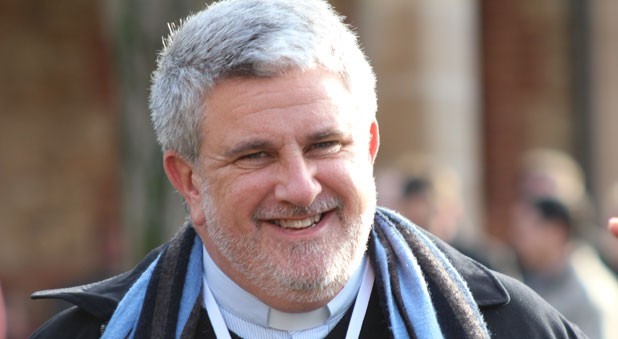The Australian branch of the Global Fellowship of Confessing Anglicans (GFCA), a worldwide movement promoting reform of the Anglican Church around the biblical gospel, is set to be launched.
The GFCA was created at the landmark Global Anglican Future Conference, or GAFCON, in Jerusalem in 2008. Now the Australian body is being launched at the Anglican Future Conference in Melbourne on March 26.
“Some parts of the Anglican Church are being weakened by a drift away from biblical authority and the Fellowship of Confessing Anglicans [FCA] stands against this movement and for a positive contemporary orthodoxy which we believe to be the essence of Anglicanism,” says the Venerable Richard Condie (pictured), Archdeacon of Melbourne and the chairman of FCA Australia’s board.
The Archbishop of Kenya, the Most Rev Eliud Wabukala – who is also chairman of the GAFCON Primates Council – will fly into Melbourne for the launch event.
Says Dr Condie: “This is a whole church movement, and we are looking for dioceses, parishes and individuals (lay and clergy) who are concerned with defending and promoting the gospel and biblical authority in Australia to join us”.
Like the international fellowship – which includes the 23 million-strong Nigerian Anglican Church – members must assent to the Jerusalem Declaration, which Dr Condie calls “a statement of contemporary orthodox Anglicanism”.
“FCA puts us in fellowship with faithful Anglicans around the world from whom we might otherwise be separated,” he says, citing the Anglican Church of North America (ACNA). “The FCA allows us to recognise them as true Anglicans.”
Australian church leaders from every state and territory will attend the Melbourne conference, which is jointly sponsored by the Evangelical Fellowship in the Anglican Communion (EFAC).
“We have two aims in Australia,” Dr Condie says. “The first is to promote a positive and vibrant orthodoxy within our denomination along the lines of the Jerusalem Declaration. The second is to provide fellowship and assistance to those who have been forced to disaffiliate from their dioceses because of the unorthodox actions of their leaders.
“Fortunately, we have not encountered this situation in Australia and we hope that by pursuing our first aim we may never have to. But in case it does happen, we want to be prepared to act and support those affected.”
There will be coverage of the conference and launch in April Southern Cross newspaper.
























